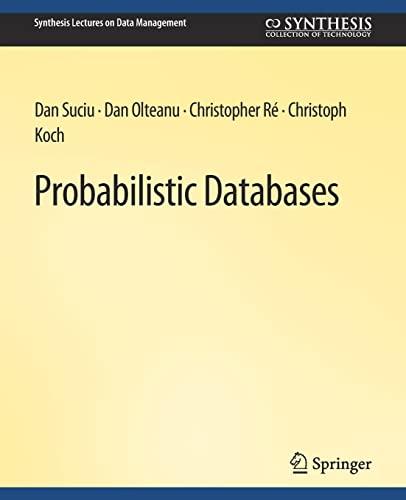Question
Working on a program where my task is to implement a library (as a set of source and header files, documentation, and a Makefile) that
Working on a program where my task is to implement a library (as a set of source and header files, documentation, and a Makefile) that provides a few useful functions for working with a counted string data structure.
And one of the functions that needs to be written is described below but I am having a little difficulty writing it. Program needs to be written in C.
void kstrfree(kstring str)
Frees the memory to which str.data points. Should correctly handle any kstring created with either kstralloc() or kstrfrom(), including those with length 0.
Note: Since the kstring is passed by value, setting its data pointer to NULL would not be reflected in the caller. This means that it is the caller's responsibility not to re-use the kstring it passed to this function.
Here is some code I have already done that might be needed:
#include
kstring kstralloc(size_t nbytes){
int i; kstring new_kstring; // creating a object of type ksting new_kstring.data = malloc(nbytes); // allocating nbytes of memory to create string of length nbytes if (new_kstring.data == NULL && nbytes!= 0){ printf("There is an error allocating memory "); abort(); } new_kstring.length = (int)nbytes; // setting length member to size mentioned using nbytes // initializinf by filling it with nbytes copies of the null byte ('\0'). for (i= 0;i
kstring kstrfrom(const char *cstr) { //first, find the length of the c-string int len = 0; while (cstr[len] != '\0') { len++; } len++; //null terminator counts in length //now allocate memory for the new kstring kstring result = kstralloc(len); //since we have the right length, save it in the kstring result.length = len; //copy the data over for (int i=0;i<(len-1);i++) { result.data[i] = cstr[i]; }
return result; }
// Driver program
int main(){ size_t i = 50; kstring kstr = kstralloc(i); // Allocating memory for data member
strcpy(kstr.data, "Testing data member"); printf("Data : %s Lenght : %d",kstr.data,kstr.length); kstrfree(kstr); return 0; }
Step by Step Solution
There are 3 Steps involved in it
Step: 1

Get Instant Access to Expert-Tailored Solutions
See step-by-step solutions with expert insights and AI powered tools for academic success
Step: 2

Step: 3

Ace Your Homework with AI
Get the answers you need in no time with our AI-driven, step-by-step assistance
Get Started


